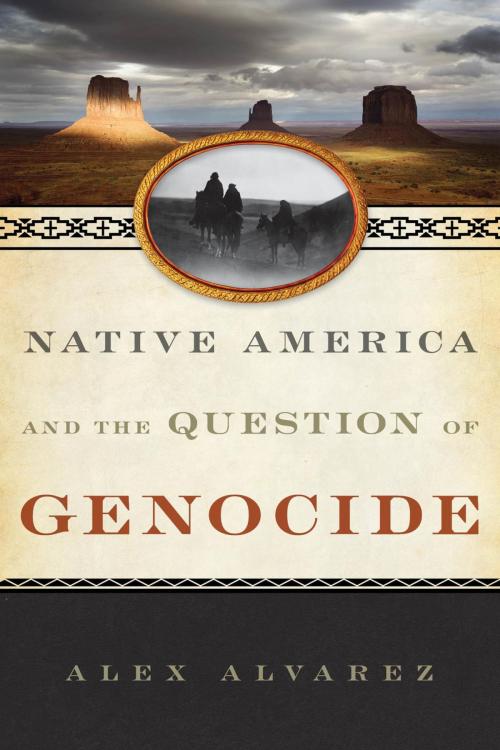Native America and the Question of Genocide
Nonfiction, Social & Cultural Studies, Social Science, Cultural Studies, Native American Studies, History, Americas, Native American, Discrimination & Race Relations| Author: | Alex Alvarez | ISBN: | 9781442225824 |
| Publisher: | Rowman & Littlefield Publishers | Publication: | March 14, 2014 |
| Imprint: | Rowman & Littlefield Publishers | Language: | English |
| Author: | Alex Alvarez |
| ISBN: | 9781442225824 |
| Publisher: | Rowman & Littlefield Publishers |
| Publication: | March 14, 2014 |
| Imprint: | Rowman & Littlefield Publishers |
| Language: | English |
Did Native Americans suffer genocide? This controversial question lies at the heart of Native America and the Question of Genocide. After reviewing the various meanings of the word “genocide,” author Alex Alvarez examines a range of well-known examples, such as the Sand Creek Massacre and the Long Walk of the Navajo, to determine where genocide occurred and where it did not. The book explores the destructive beliefs of the European settlers and then looks at topics including disease, war, and education through the lens of genocide.
Native America and the Question of Genocide shows the diversity of Native American experiences postcontact and illustrates how tribes relied on ever-evolving and changing strategies of confrontation and accommodation, depending on their location, the time period, and individuals involved, and how these often resulted in very different experiences. Alvarez treats this difficult subject with sensitivity and uncovers the complex realities of this troubling period in American history.
Did Native Americans suffer genocide? This controversial question lies at the heart of Native America and the Question of Genocide. After reviewing the various meanings of the word “genocide,” author Alex Alvarez examines a range of well-known examples, such as the Sand Creek Massacre and the Long Walk of the Navajo, to determine where genocide occurred and where it did not. The book explores the destructive beliefs of the European settlers and then looks at topics including disease, war, and education through the lens of genocide.
Native America and the Question of Genocide shows the diversity of Native American experiences postcontact and illustrates how tribes relied on ever-evolving and changing strategies of confrontation and accommodation, depending on their location, the time period, and individuals involved, and how these often resulted in very different experiences. Alvarez treats this difficult subject with sensitivity and uncovers the complex realities of this troubling period in American history.















